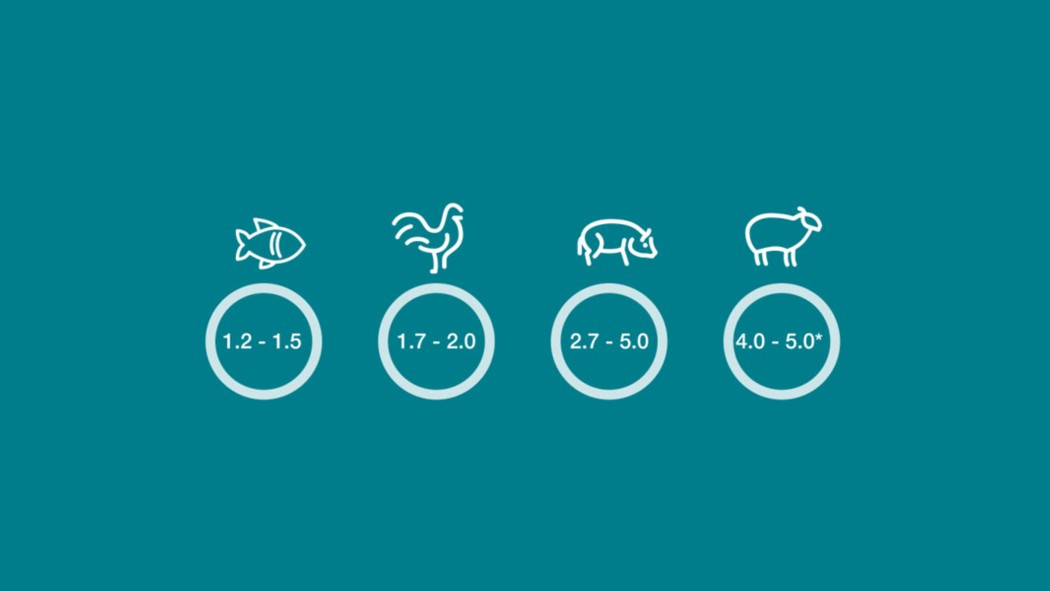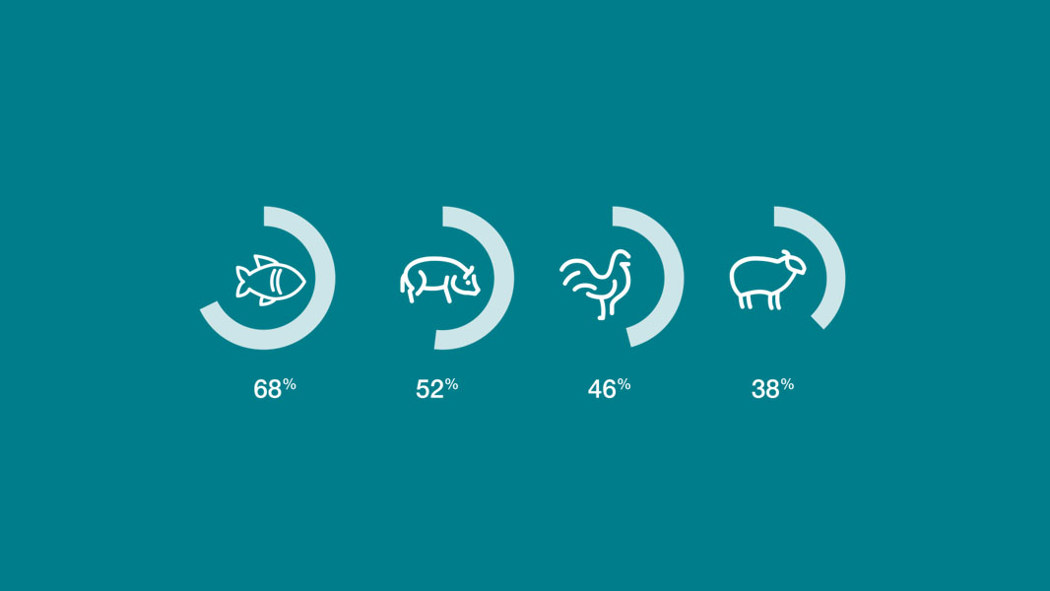How much feed does it take to raise a farmed fish?
Fish and prawns are extremely efficient at converting feed into high-quality protein. On average, farmed fish need 1.1 kg of feed to gain 1 kg of body mass, compared to 1.7 kg for poultry and 6.6 kg for livestock.
Through a comprehensive understanding of specific nutritional needs, Atlantic salmon is currently the most efficient animal to produce, with the lowest FCR.

Efficient protein
Fish are the most efficient animals to produce, as the feed conversion ratio (FCA) is very low. FCA is the amount of feed an animal needs to gain one kilogram of body weight.
Due to many years of research into specific nutritional requirements, Atlantic salmon is now the most efficient animal to produce, with the lowest FCA. Normally, Atlantic salmon need 1.15 kg of feed to gain 1 kg of body weight. Pigs need more than twice as much feed as salmon to gain 1 kg, while sheep need to eat almost six times as much.
Harvest yield
Fish also has a high harvest yield compared to other farm animals. Crop yield is the percentage of the animal that remains after the inedible parts are removed. For example, Atlantic salmon has a total yield of 68%. In comparison, chicken has a harvest yield of only 47%.


Making ponds more profitable for catfish farmers in Nigeria
Since 2015, we have partnered with Nutreco on the Catfish Sustainability Project (CSP) in Nigeria, working to improve the production, profitability and environmental sustainability of catfish farming in the Ibadan region, while empowering smallholder farmers to lift themselves out of poverty.